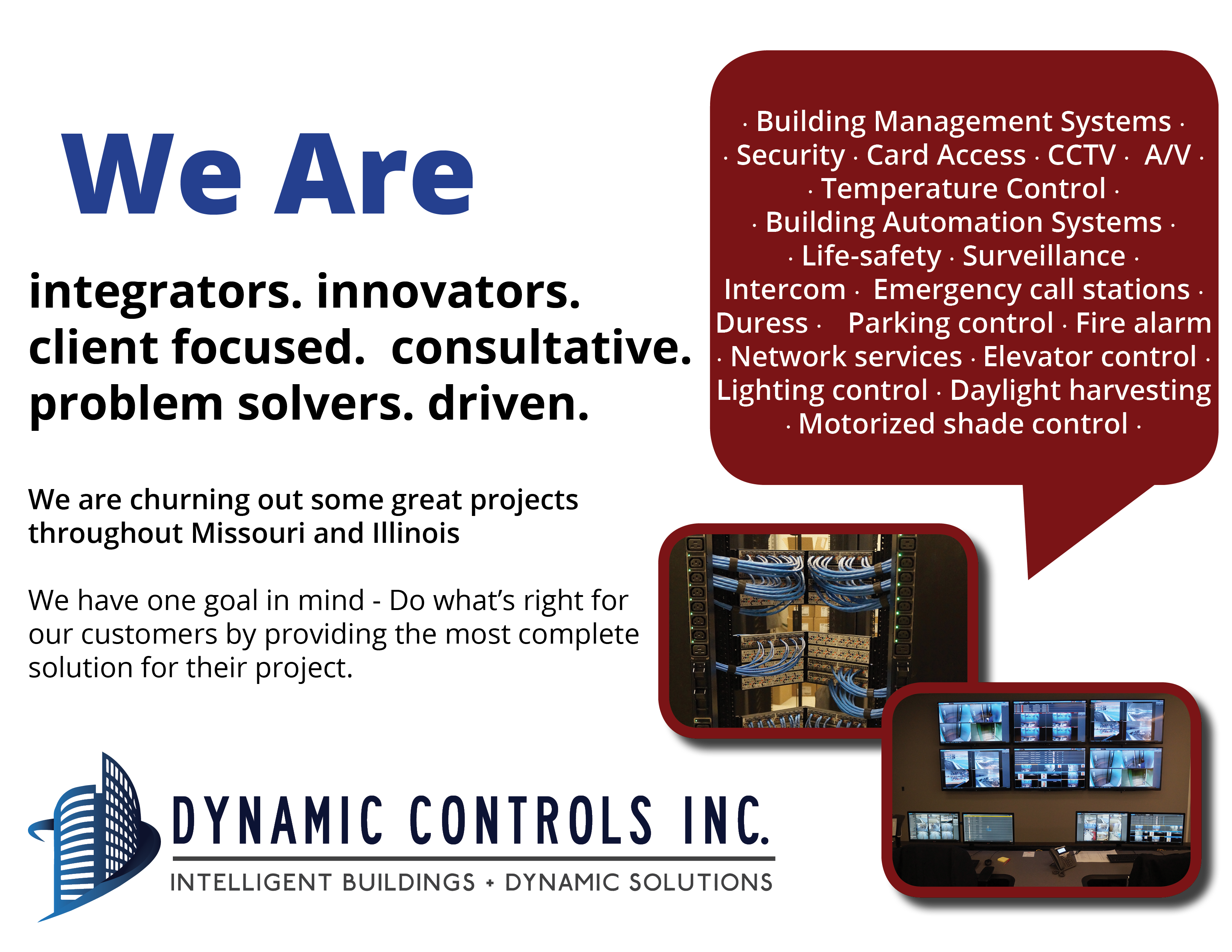Commissioning is a quality control/quality assurance process, said Marijn Braadbaart, director of commissioning at Ross & Baruzzini. “Everyone is trying to do more with less,” he said. “Owners are trying to build faster with fewer people and fewer staff. Architects are designing with fewer staff. The contractor got the job with a low bid. Then the operator is trying to operate the building with fewer staff.” At the same time, buildings have become enormously more complex with networking, energy efficient systems, and stricter building codes. “Commissioning has been a way for the owner to insert some quality control back into the process,” Braadbaart said.
Linda Marie Grawl, principal in charge of commissioning at Zak Companies, said, “Everyone is trying to do a good job, but they
are moving at lightning speed and systems are so much more complex than they used to be.” Good contractors check their own work and the equipment they install, but, “it is really hard to have people check entire systems to make sure that everything is working together, much less have them force failures so that they can teach facility staff what to do in such a situation. It is not something that is in the contractor’s budget,” she said. For even the best of contractors and designers, much like the best writers, “it is sometimes nice to have a third party proofread and back-check your work,” she said.
And, if getting the best building possible delivered isn’t enough motivation for an owner or general contractor, “consider how much time is spent returning after construction is complete to try to troubleshoot the systems, which can continue for several
years,” said Angelo Arzano, technical principal, HOK. “Proper commissioning works out all the bugs before the construction team leaves the project.” HOK doesn’t do commissioning, but has a role in coordinating commissioning requirements on jobs the firm designs. “When commissioning is done properly and done collaboratively, the commissioning agent is watching out for everyone,” Grawl said.
Types of Commissioning
As a LEED (Leadership in Energy and Environmental Design) consultant, Thomas Taylor, principal of Vertegy, LLC, often works with a commissioning agent. LEED certification requires “fundamental” commissioning. Additional credits are available for “enhanced” commissioning and “whole building” commissioning. “Fundamental commissioning is just for systems that consume or produce energy or water, such as HVAC or lighting controls,” he said. That kind of commissioning “provides building owners  and tenants with energy savings, increased comfort, and prolonged equipment life cycles,” said Jeff Gross, President of Dynamic Controls.
and tenants with energy savings, increased comfort, and prolonged equipment life cycles,” said Jeff Gross, President of Dynamic Controls.
Enhanced commissioning, Taylor said, “is the same as fundamental commissioning, but also requires a design review in order to make sure everything in the owner’s practice requirement is actually incorporated into drawings. It also requires a commitment to a 10-month follow-up visit and creation of a systems manual for the facility manager.”
Whole building commissioning, he said, “is focused on the building envelope and commissioning those things as well mechanical and electrical systems.” The value he has seen in commissioning is, “It will catch things that unintentionally didn’t get done, or were incorrect, or will lead to maintenance issues in real world,” he said. Gross, whose focus is on lighting and mechanical systems, divides the commissioning work he is familiar with into new building commissioning, recomissioning, retro-commissioning, and monitoring-based commissioning.
When it comes to mechanical and electrical systems, new building commissioning is the most common, Gross said, but not the most cost effective. “Incorporating commissioning earlier in the planning stages and expanding it throughout the life cycle will maximize its effectiveness the savings it generates,” he said. Gross recommends that building owners consider recommissioning every three to four years, because “building system components fall out of alignment with their original performance state through natural wear and tear.”
Retro-commissioning involves validating and fine-tuning systems for a facility that is in service, but had not previously been commissioned for however it was being used or occupied.
Monitoring-based commissioning is the new kid on the block, and one that is turning heads. “Monitoring-based commissioning relies on continuously collecting data and running it through analytics software to identify problems and suggest solutions in real time. Building owners and managers can then fine-tune their systems on an ongoing basis, instead of letting those systems fall out of alignment over the course of months or years,” Gross said.
More broadly, commissioning agents say that commissioning is almost infinitely customizable and has wide application outside of LEED. Baskar Subbarao, president of Zodiac, Inc., a St. Louis-based commissioning firm, classifies the reasons for commissioning into six families:
- Building systems – making sure that increasing specialized and integrated building systems work together and provide the service the owner expects
- Voluntary rating programs – meeting the requirements of such programs as LEED or Green Globes
- Energy savings
- Company policies – verifying compliance with internal company design or construction practices
- Maintainability – optimize the maintainability and reliability for building operations
- Property values – optimize systems to maintain the value of a commercial property.
“It is like buying a car,” Braadbaart said. “If you are just buying a little commuter to just go to work and back, you pick a color, but you’re not too picky about the engine. If you are a racecar driver, it is a whole different ball
game. And if you are buying an ambulance, it is different yet.”
“Incorporating commissioning earlier in the planning stages and expanding
it throughout the life cycle will maximize its effectiveness the savings it generates,” Gross said.
“Commissioning exists across several dimensions,” he said, “design, construction, testing and acceptance, and warranty. You may not want commissioning in all.” Commissioning exists across several systems as well: electrical, mechanical, plumbing, fire protection, and building envelope, and an owner has to decide which ones he wants commissioned. “The final piece is how rigorous do you need it to be,” Braadbaart said. “Some clients want us to show up when everything is done and make
sure it works. Others want everything, soup to nuts.”
Commissioning for All
While the cost of commissioning must make economic sense on any particular project, “in most cases, improved operational efficiencies and comfort more than make up for the expense,” said Gross. “I don’t believe commissioning is just for large projects,” Grawl said. “It depends on what you use it for.”
Zak Companies, for example, commissioned an existing heating, ventilation, and air conditioning (HVAC) system in a 40,000-square-foot space that was to be rented to a law firm. “We did it because the lease was tied to the system’s performance,” Grawl said.
Taylor said that the value of commissioning “depends on complexity of the project and the capabilities of the facility manager after construction is complete . . . The more complex a building is, the more you lean towards commissioning.”
For Braadbaart, risk is the important metric. “If you look at commissioning as a risk management exercise, then size becomes
irrelevant and project cost becomes irrelevant. What is relevant is the risk to your mission,” he said.
If a 10,000-square-foot data center runs a company’s operation, for example, what is the risk to the company’s mission if the building systems in the data center don’t work right?
Looked at from that perspective, Ross & Baruzzini doesn’t put the same focus on commissioning every part of a building. “We look at performance requirements to decide where to focus,” Braadbaart said.
Qualities of a Good Commissioning Agent
Arzano said, “A commissioning agent should be a licensed professional, experienced in the design, operation and maintenance of the specific system. To get the most out of the process, we get the commissioning agent involved during the design to ensure that the proper commissioning procedures are specified for the equipment.” Subbarao added that the commissioning agent should have good communication skills.
“So much of commissioning is the person,” Grawl said. In addition to technical expertise on the same or similar systems, make sure that their philosophy or concept of commissioning lines up with your team’s philosophy, she said. “You have to have the right personalities,” she said. “They should enhance the team. They should get along with everybody and not try to make themselves look good at others’ expense.”
“I don’t believe commissioning is just for large projects,” Grawl said. “It depends on what you use it for.”
In addition to the technical expertise and relevant experience of the individuals who will be on the commissioning team, Taylor looks into their approach to commissioning. “I’ve witnessed a couple of different approaches,” he said. “Some commissioning
are very hands on and want to do a lot of field inspection and physical witness. Others rely on building automation information to determine things are operating correctly. I like both,” he said. “People who do physical inspection with building automation do a more thorough job. For example, suppose an access door is too close to a wall so you can’t actually gain access, or a valve is hard to reach, or a piece of equipment in the facility is blocking heat from a heater so it doesn’t reach the area it is supposed to serve. You wouldn’t find that from automation information, because the equipment is operating correctly.”
A commissioning agent needs to understand all parties’ interests, Braadbaart said. “Because you have to understand the
project end use and owner’s role, you have to understand the business. You have to understand the design, because often you
have to review the design. You have to understand how things are getting built, and in end have to understand how things are
operated from operator’s perspective. So, in end, you have to understand all of the parties."
“How you do (commissioning) is also important. We think it is counterproductive to walk around like a policeman and say, ‘this is wrong’. It is better to ask what is necessary to do it right and why was it done wrong. Was it cost? Was it a misunderstanding? As agent, we have to be flexible and team oriented. We’re trying to coach the entire team to get to
a higher level of excellence by helping them work together as a team more effectively and efficiency.” Or, as Grawl said, “We’re not the engine, the chassis, or the car. We’re the oil you need to make it run smoothly.”
*Originally published in the July-August 2016 issue of St. Louis Construction News & Review
